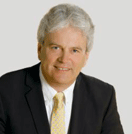RESEARCH ARTICLE
Improving Quality of Life in Older Adults Living at Home by a Moderate Exercise Training
Mauro Giovanni Carta1, Laura Atzori1, *, Cesar Ivan Aviles Gonzales2, 3, Luigi Minerba1, Massimiliano Pau4, Antonio Crisafulli1, Alberto Cauli1, Caterina Ferreli1, Roberto Puxeddu5, Germano Orrù5, Alessandra Scano5, Sergio Machado6, 7, Ferdinando Romano8, Giulia Cossu1, Antonio Preti9
Article Information
Identifiers and Pagination:
Year: 2022Volume: 15
E-location ID: e187435012206060
Publisher ID: e187435012206060
DOI: 10.2174/18743501-v15-e2206060
Article History:
Received Date: 10/12/2021Revision Received Date: 01/2/2022
Acceptance Date: 16/3/2022
Electronic publication date: 03/08/2022
Collection year: 2022

open-access license: This is an open access article distributed under the terms of the Creative Commons Attribution 4.0 International Public License (CC-BY 4.0), a copy of which is available at: https://creativecommons.org/licenses/by/4.0/legalcode. This license permits unrestricted use, distribution, and reproduction in any medium, provided the original author and source are credited.
Abstract
Background:
Physical activity is associated with a higher quality of life (QoL) in older adults, but there is no evidence whether its effects on healthy individuals or individuals with a mild disability performing a medium-intensity exercise program can be assessed.
Objective:
This randomized controlled trial aims to evaluate whether moderate exercise training can improve QoL, and whether this model is suitable for older adults with mild chronic diseases living in the community.
Methods:
120 participants, randomized 1/1 to either perform a physical exercise protocol or to undergo a social program (control group), were recruited in a 12-week randomized controlled trial registered at ClinicalTrials.Gov (NCT03858114). QoL was measured through the Health-Related Quality of Life Survey Short Form - 12 items tool (SF-12).
Results:
The participants involved in the exercise-training program had a moderate QoL improvement, compared to those involved in cultural activities, who experienced no change or even a worsening of their QoL. However, the between-groups differences did not attain the statistically significant threshold, when globally assessed, F[1, 103] = 2.98, p = .087, nor when the analysis was restricted to the physical (F[1, 103] = 2.78, p = .099) or mental components (F[1, 103] = 3.83, p = .053).
Conclusion:
Data from this study are not conclusive, although suggestive of possible efficacy. An effort to collect a larger amount of evidence is advisable. Research published only as protocols, not providing final results, might be useful to demonstrate or reject the hypothesis that physical exercise improves QoL in older adults. On a heuristic level, the sum of results that are not conclusive individually might be decisive if meta-analyzed.
(Randomized Controlled Blind trial NCT03858114).







